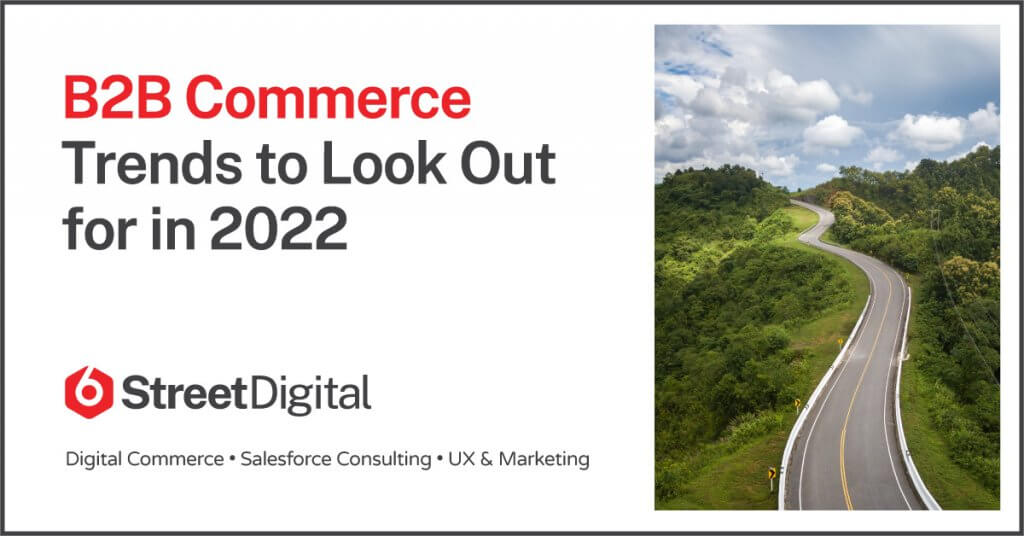Keeping up with the latest trends can be difficult, but it’s not impossible!
In the world of business-to-business (B2B) commerce, nothing ever stays stagnant. New platforms and updates come regularly which means you need to adapt your business strategies to stay relevant to your audience.
We have gathered up the latest B2B commerce trends that are worth keeping an eye out for in 2022. Keep reading to learn more!
B2B Commerce Tips with Online Marketplaces
The internet has become a major player in the retail industry, as online marketplaces like Amazon and eBay have taken over.
An online marketplace is a platform that sells products or subscription services from a range of sellers or a single provider. Using websites to sell products is popular for businesses looking to increase their sales. The business-to-consumer (B2C) industry excels in this trend as consumers start to shift to a more tech-savvy lifestyle.
However, B2B eCommerce sales have been growing rapidly, reaching new heights.
If you have a product, why not sell it on an online marketplace? Online marketplaces are beneficial to make use of in a B2B perspective.
You can reach prospective buyers without them having to navigate to other websites to complete a purchase. You would be able to give your prospects a customer experience with no hassle!
As the marketplace continues to evolve, it is important to think about the opportunities you have to offer your products. Here are some questions to consider when thinking about selling on an online marketplace:
- What are your goals for this marketplace?
- Who is your target audience and how will you best attract them?
- What marketplace caters well to your niche?
- What does your business model look like in this marketplace?
Fast Order Fulfilment
The need for fast and efficient fulfillment processes is important.
It’s in such high demand as more B2B companies embrace digital platforms. B2B companies are conducting business through B2B eCommerce channels. That allows for a more transparent and efficient distribution process.
B2B fulfillment is the process of filling orders for other businesses or retailers to stock up on inventory and resell it at a profit. These businesses resell to their consumers through multiple channels or their own. B2C fulfillment orders are generally more focused on small orders.
B2B eCommerce fulfillment is for larger product quantities and lower order volumes. This means that B2B companies will order in bulk and order once every few months. In general, B2B fulfillment includes more complex shipping, cost, logistics, and regulations.
You can distribute your products fast by integrating a process with automated inventory software. This will reduce human error and the time taken to store, pick, and log-in products. Automation in sales and fulfillment can help your business optimize your supply chain. It can help save money on labor expenses and still provide high-quality customer service!
Thanks to automated fulfillment systems, customers nowadays expect fast and efficient fulfillment processes. Your business must operate according to this demand. Take advantage of this automated system. Here are some things to consider when implementing a fulfillment strategy:
- How will you receive and process orders?
- When is the best time to schedule deliveries?
- Which software can optimize order fulfillment while providing insights into the operation?
- Are you able to control and maintain optimal inventory throughout the supply chain?
Digital First Marketing Strategy
Since the COVID-19 pandemic hit, more consumers have preferred digital interaction with brands.
This means a digital-first marketing strategy will become central to reaching your target audience in 2022. B2B digital marketing is a form of marketing service that utilizes digital platforms to communicate. Some digital marketing strategies include:
- Website optimization
- SEO
- Social media marketing
- PPC campaigns
- Email marketing
Having a digital brand presence offers opportunities to grow brand awareness. It helps you connect with prospective and loyal consumers. You are also able to track and measure key performance indicators (KPI’s) and analytics. This is helpful to have so you can see how your audience is responding to your digital marketing efforts.
Here are some things to consider when implementing a B2B digital marketing strategy:
- Which channels will cater best to your audience?
- Does your website provide useful and relevant information?
- What content does your audience find valuable?
- Is my digital marketing strategy aligned with my business strategy?
B2B Customer Personalization Experience
Having a personalized customer experience is crucial to building and maintaining long-lasting relationships. This is important for both clients and suppliers.
B2B personalization is the effort to communicate with your audience in a way that they will understand and appreciate. You are ultimately creating a successful customer experience by building trust and authenticity. You do this through personable transactions.
To provide a personalized customer experience, you must optimize your marketing strategy. You should be able to deliver faster, more relevant, and valuable experiences to your customers. You can see this through website content, digital ads, email marketing, and social media. Here are some things to consider when implementing a personalized B2B customer experience:
- Does your copywriting address your client’s needs?
- Can you repurpose existing content to better suit website visitors?
- Do you have sufficient data to create targeted ads?
- Do you send emails based on where your client is on the customer journey map?
Getting Ready For B2B Commerce in 2022
As technology evolves and consumer behavior shifts, it’s important to keep an eye out for upcoming trends and changes to stay ahead of the game! By doing this, you can improve your customer’s shopping experience and nurture relationships with them.
Take advantage of these four B2B commerce trends and ensure growth for your business! When you’re ready to get started, give us a call.
